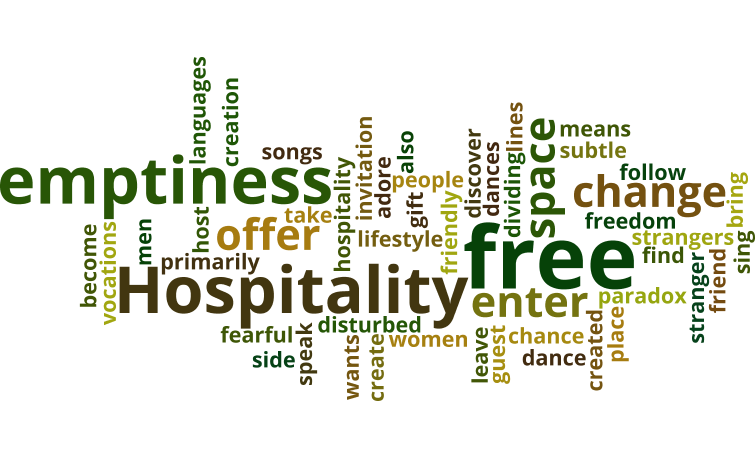“ For in Christ
Jesus neither circumcision nor uncircumcision counts for anything; the only
thing that counts is faith working through love.” Galatians
5:6
In
the letter to the Galatians, Paul chastises the church for so easily falling
away from the teaching they received that, in Christ, all have been made free
of keeping the Jewish religious law. For, the Galatian gentiles have apparently
embraced the practice of circumcision to prove that they “belong” to this new
Jewish sect (that has not yet been named “Christianity”). Circumcision was the
sign of inclusion for law-abiding Jews. Paul is eager to point out that there
is a new way of living that does not require adherence to the law nor any
external sign of inclusion. He calls it living “in the Spirit.” He criticizes
the Galatians for starting with the Spirit (of Christ) and ending with the
(Jewish) law, a backward movement. He reminds them that what “counts is faith
working through love.” Neither faith nor love is concretely measurable. This
leaves all judgment in God’s hands and frees followers of Christ to be
open-hearted and open-handed toward all people, no matter their ethnic origin,
their religious practice, or their gender. In Christ, he says, all are free.
Keeping
Jewish law, particularly the religious practice of circumcision, is no longer
much of an issue for Christians in the West. What issue or issues divide us?
How would we write this admonition today so it would be an equivalent warning
to us to avoid the same kind of misplaced energy the Galatians were giving to “keeping
the law?”
Each
one of us will probably have to examine our consciences to find the “law” we
are “keeping” that creates for us a container of inclusion or a wall of
exclusion. For it is this sin, of excluding (or preferentially including)
another on the basis of some “law,” that is at the heart of the message to the
Galatians. This issue also resonates with our current experience in North
America. There are folks excluded because of their immigrant status, gender,
relative power status, socio-economic state, religion, and even their “fit” into
what is expected as “normal.” Of course, we all want others to be “like us” because
that is more immediately comfortable than the stew of differences we find in
this heavily populated globe where we rub shoulders with the “other” more than
we might like.
But,
is it possible that we exclude the very folks we should be welcoming because
they don’t live life as we do? What if they practice a different religion? Does
that make them excludable? As I read the Bible, I see that the better practice
is to welcome and include rather than to exclude. Jesus admonishes in the
gospels not to fear what others can do to us (Matthew 10:26-33 and Luke
12:2-7). But we are to major in “love for others” (John 15:9-17). We are more likely to be guilty of pushing
someone out of God’s welcome than we would be “tainted” by their presence or
practice when we welcome them in love. In another place, Jesus teaches,“Whoever
is not against us is for us” (Mark 9:40).
When
fear runs amok among us, we shout down demons and decry other practices as
antithetical to our faith. But it really has nothing to do with faith. Faith is
not visible nor measurable; it is not what we do, but how we are. Rather, as
faith is worked out in loving others, it is recognized as fruitful. We can be
haters, fearing others’ practices, or we can be lovers, welcoming differences
and growing stronger in loving as God loves in the process. Protectionism breeds exclusion and expands
the field of outsiders. Welcome invites inclusion and opens new avenues or new
ways of apprehending the ultimately unknowable Mystery of God.
What
I’m talking about is a radical hospitality that refuses self-protection or even
the protection of some valued tradition, in favor of extending an open welcome.
This is a hospitality that does not have rules but that allows each person to
find the rule for their own life, trusting that God continues to work in the
world and affirming that ultimately God is in charge of how the world is
constituted.
Henri
Nowuen, in his masterful meditation on transformation, Reaching
Out,
writes about this kind of hospitality.
“Hospitality
means primarily the creation of a free space where the stranger can enter and
become a friend … Hospitality is not to change people but to offer them space
where change can take place. It is not to bring men and women over to our side,
but to offer freedom not disturbed by dividing lines. . . . The paradox of
hospitality is that it wants to create emptiness, not a fearful emptiness, but
a friendly emptiness where strangers can enter and discover themselves as
created free; free to sing their own songs, speak their own languages, dance
their own dances; free also to leave and follow their own vocations.
Hospitality is not a subtle invitation to adore the lifestyle of the host, but
the gift of a chance for the guest to find his own.” — Henri Nouwen, Reaching Out, 51
I
wonder if we have enough courage to weave this kind of hospitality into our
daily lives? It is quite risky. It might even cost us friendships, the respect
of family members, or our jobs to live this way. It will certainly be
misunderstood or misconstrued. Jesus was maligned for healing, caring for the
outcast, and loving everyone without exclusion. As we move toward Good Friday,
we remember that this kind of hospitality could also have ultimate
consequences. May we all aspire to give our lives to, and even for, loving as
God loves, extending unlimited and freeing hospitality.
Naomi
Wenger, March 2019



